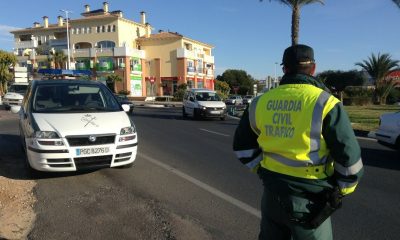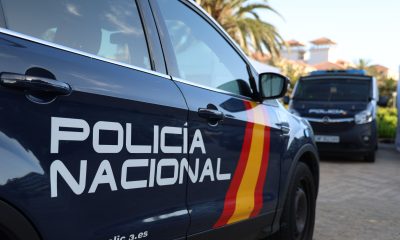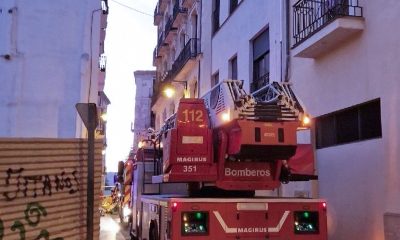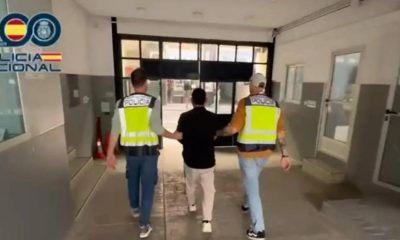Costa Blanca
The Ukrainian House will open “soon” in Torrevieja
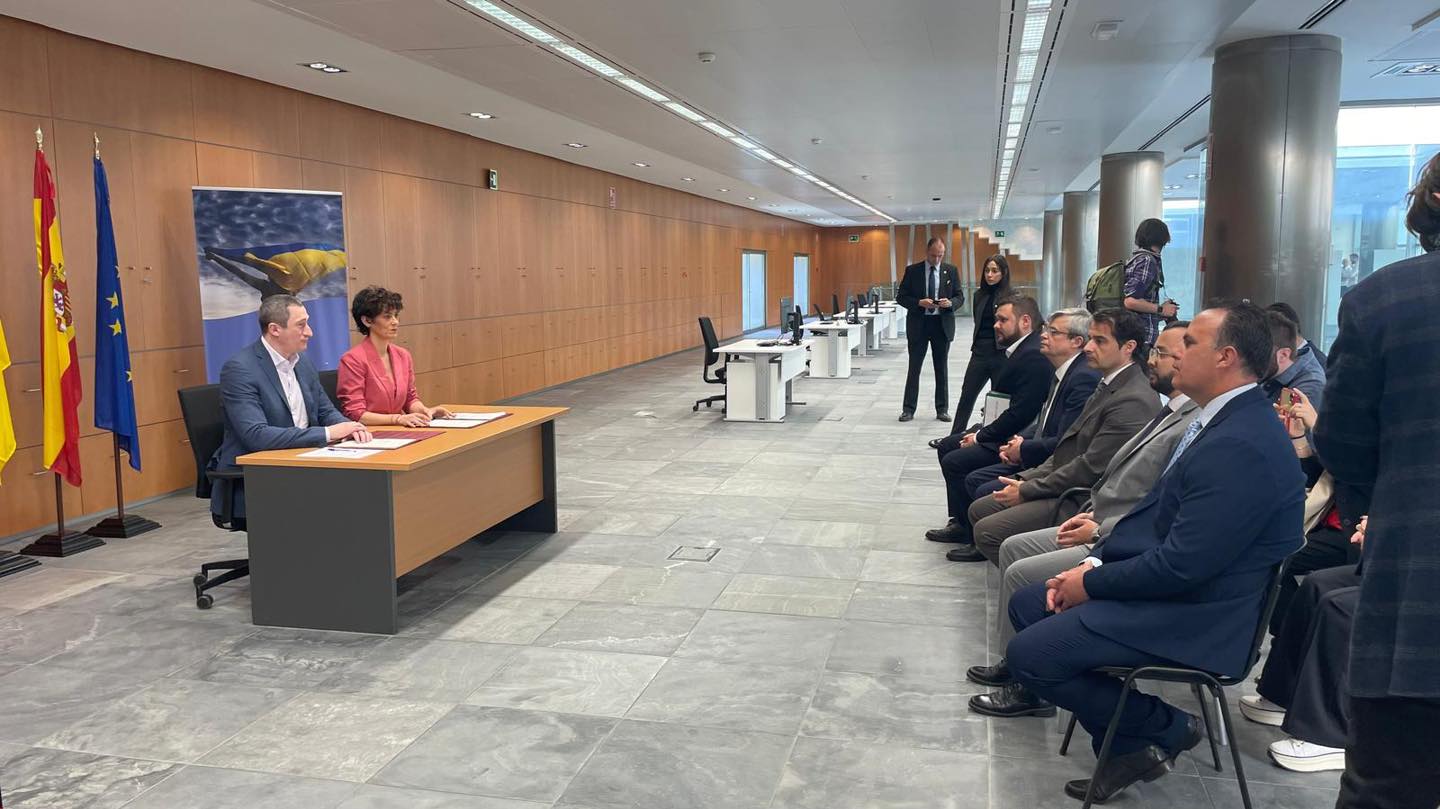
Soon, the Ukrainian House in Spain will open in a government-donated property in Torrevieja, Alicante. It will help and counsel individuals who want to return when safety conditions allow, as well as preserve connections between those who have been displaced by the war and their homeland.
After touring the facilities provided by the government in the Care, Reception and Referral Centre building, one of four in Spain along with Madrid, Barcelona and Malaga, Ukrainian Deputy Prime Minister and Minister of National Unity Oleksiy Chernyshov made this statement yesterday, Thursday 27th March, in Torrevieja. Elma Saiz, the Minister of Migration, Social Security and Inclusion, and Eduardo Dolón, the mayor of the city, also shared this viewpoint.
In Torrevieja, a city with over 10,000 registered residents and one of the major hubs of the diaspora in Spain, the Deputy Prime Minister’s presence—bolstered by a robust Guardia Civil presence—was followed by a meeting with leaders of compatriot associations.
Chernyshov clarified that the Ukrainian House will open “very soon” and is anticipated to coincide with the inauguration of the Ukrainian Houses in Germany, Poland, the Czech Republic, and, most likely, Italy, despite the fact that no opening dates have been set.
Within the Ukrainian ‘Unity Hub Space’ in the EU is the Ukrainian House
The ambitious ‘Unity Hub Space’ initiative, which includes all of these Ukrainian Houses throughout European nations, aims to offer a wide range of services to the Old Continent, including banking, employment, education, healthcare, business assistance, and consular services.
In order to help citizens who had to flee the war feel “connected” to their homeland, the Ukrainian Deputy Prime Minister underlined the significance of this centre. It also facilitated, under safe conditions, return procedures, such as work permits, the location of schools for minors, and various documents.
Chernyshov said his nation is grateful to Spain for sheltering the people who have been displaced by Russian aggression over the last three years and for making it possible for this Ukrainian House to open.
“A place of encounter and hope,” Minister Saiz said
The Ukrainian House was established as “a space of hope and meeting” to serve Ukrainians, of whom there are thought to be over 230,000 in Spain under temporary protection, according to Elma Saiz, Minister of Migration, Social Security, and Immigration.
According to the data he presented, there are approximately 30,000 youngsters enrolled in the national education system, and he said that over 40,000 Ukrainians have gone through the foster care institutions that the central government has put in place.
About half of the 30,000 diaspora members with temporary protection who are registered with Spanish Social Security are women, demonstrating the “example of integration and inclusion” that has occurred.
Saiz added that the Ukrainian House’s first floor is entirely open-plan, and that the transfer to Ukraine entails that Ukraine will be in charge of assigning particular personnel and overseeing the activities offered.
Discover more from Costa Blanca Daily
Subscribe to get the latest posts sent to your email.
Costa Blanca
Six arrested for the use of AI to defraud over 19 million euros
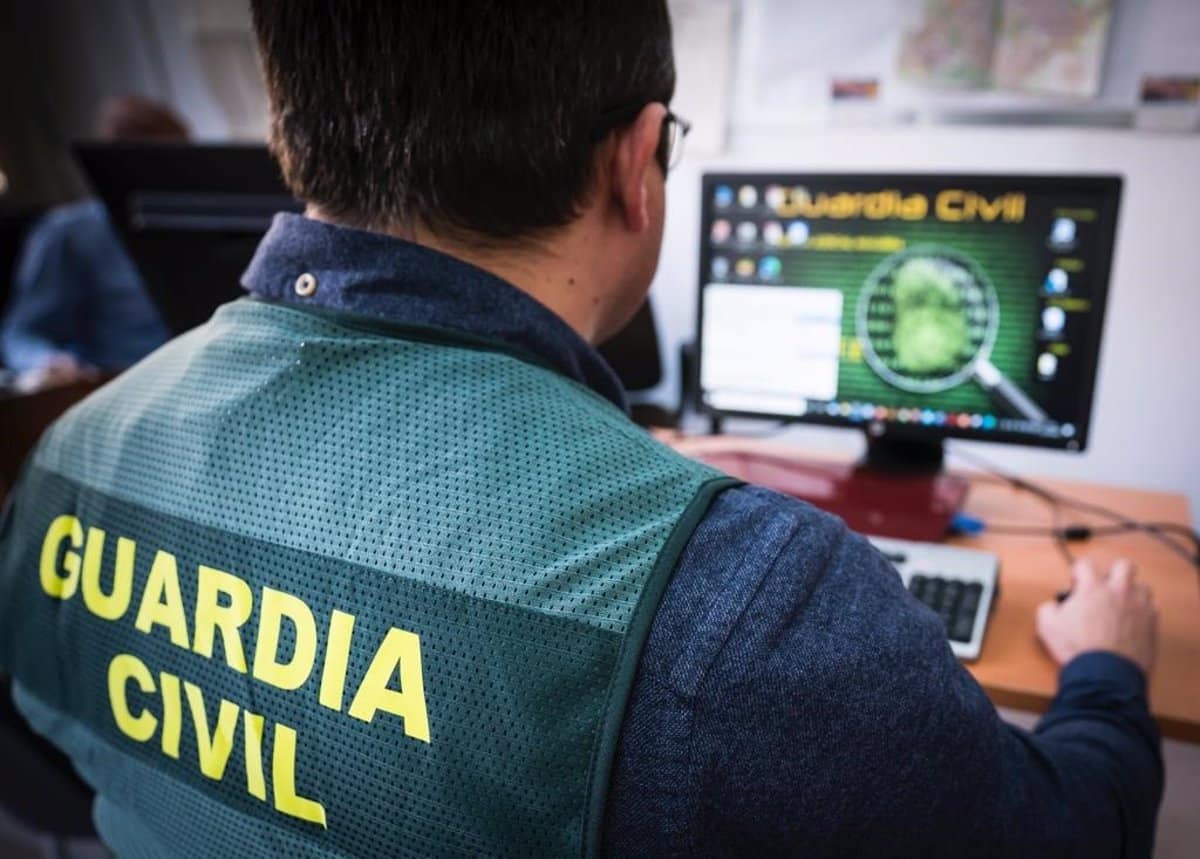
As part of Operation Coinblack-Wendimine, the Guardia Civil and the National Police have apprehended six individuals between the ages of 34 and 57 who are purportedly affiliated with a criminal organisation that is accused of defrauding over €19 million from 208 victims through fraudulent cryptocurrency investments.
The investigation was conducted in a variety of locations throughout Alicante and Granada. Agents conducted a search of the residence of the organisation’s primary commander in Spain, who was preparing to leave for Dubai. They confiscated a fake gun, extensive documentation, numerous mobile phones, computers, and hard drives.
Two years ago, a man in Granada reported that he had been defrauded of €624,000, which sparked the operation. Officers discovered the network that connected the criminal organisation to cryptocurrency investments that were ultimately discovered to be fraudulent. Concurrently, the National Police in Alicante were conducting an investigation into the same network, which encompassed the offence of document forgery.
The organisation advertised on a variety of websites that were associated with cryptocurrency investments and featured prominent figures. Additionally, the victims were not chosen at random; rather, algorithms selected those whose profiles corresponded with the cybercriminals’ enquiries.
After selecting their victims, they placed advertising campaigns on the websites or social media platforms they used, promising them cryptocurrency investments with high returns and no danger of financial loss. These investments, of course, turned out to be scams. After selecting their victims, they established advertising campaigns on the websites or social media platforms they utilised, promising them cryptocurrency investments with high returns and no danger of financial loss. These investments, of course, proved to be fraudulent.
False financial advisors
The cybercriminals gained their trust by masquerading as financial advisors, sometimes even claiming to be in a romantic relationship, and by sending them false information through fake websites with fictitious returns. They urged them to convert all of the money in their accounts to cryptocurrency. Upon deciding to extricate their investment funds, the victims encountered numerous obstacles and impediments, which led them to the realisation that they had been defrauded.
The cybercriminals contacted the victims again after a period of time, assuming the identity of investment managers and informing them that the money had been locked. They also stated that it was possible to retrieve the funds, but in order to do so, they would need to make another deposit, typically in the amount of a substantial sum. The victims, who had reported the incidents, received a message from fictitious Europol agents or lawyers from the United Kingdom, informing them that they had successfully retrieved their money and that the only remaining task was to pay the taxes associated with the country in which it was blocked. Once more, they consented to pay the purported taxes, confident that they would be able to recoup their investment.
The victims, who had reported the incident to the Guardia Civil or the National Police, received a message from fictitious Europol agents or fictitious UK lawyers informing them that they had successfully recovered their money and that the only remaining task was to pay the taxes associated with the country in which it was blocked. Once more, they consented to pay the purported taxes, confident that they would be able to recoup their investment.
Arrests were conducted in Alicante, Torrevieja, Santa Pola, and Villajoyosa. Fraud, money laundering, and falsification of documents within a criminal organisation are all charges against each individual. The ringleader was remanded in detention after being brought before the Alicante Investigative Court. The inquiry continues to be ongoing.
The Technological Crimes Investigation Team (EDITE) of the Organic Judicial Police Unit of the Granada Civil Guard and the Unit against Immigration Networks and Document Forgery (UCRIF-3) of the Alicante National Police conducted the operation, which was overseen by the Granada Prosecutor for Technological Crimes.
Discover more from Costa Blanca Daily
Subscribe to get the latest posts sent to your email.
Costa Blanca
Helicopter rescue operation near Santa Pola lighthouse
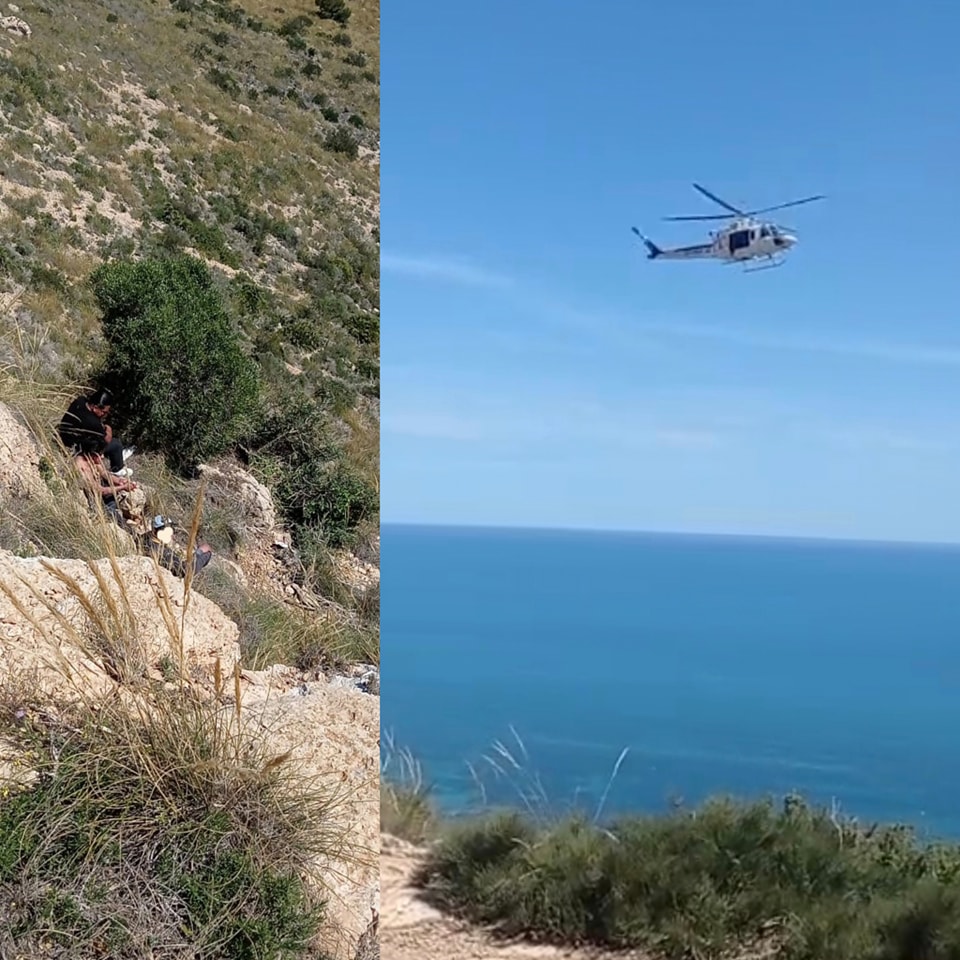
A substantial emergency services response was initiated in the vicinity of the Santa Pola lighthouse viewing platform as a consequence of an alleged irresponsible incident. A man, who appeared to be under the influence of alcohol, became too close to the cliff edge to urinate, resulting in his fall and the entrapment of himself and two companions who attempted to assist him. Fortunately, the injured man was able to stop his fall from the cliff just a few metres away, thereby preventing any additional harm that could have been fatal.
The incident needed the mobilisation of three local police patrols, Guardia Civil officers, an ambulance, and the fire department, which arrived via helicopter and ground personnel. The injured individual did not require air evacuation. The injured man was treated on-site by the firefighter rescue team, who were aided by the doctor who was travelling in the helicopter. They then securely immobilised him and transported him to the top of the cliff, where he was placed on a stretcher and transferred to the ambulance.
The victim, who, according to witnesses, exhibited signs of intoxication, was transported to the Elche General University Hospital for additional medical attention. However, he was not in a life-threatening condition. The two friends who had accompanied him to the bottom of the cliff also needed help to return to safety, as they were ensnared on the overhang.
Discover more from Costa Blanca Daily
Subscribe to get the latest posts sent to your email.
Costa Blanca
This week the DGT will issue over 64,000 speeding tickets
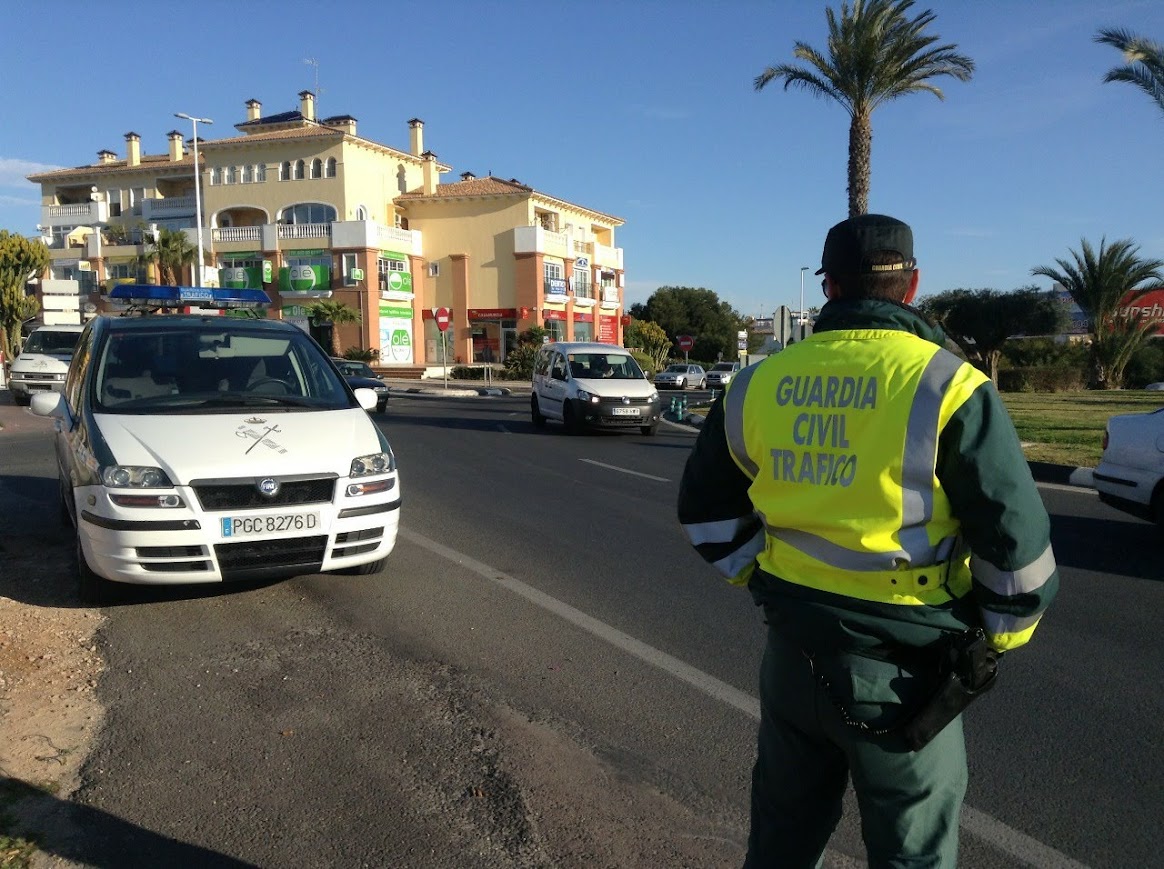
It is imperative that you adhere to traffic regulations concerning speed limits on the roads, as failure to do so could result in a costly week. The DGT (Directorate General of Traffic) has announced that it will implement rigorous speed control measures throughout Spain from today, April 7th, until next Sunday, April 13th, as part of a global European campaign developed by the RoadPol (European Roads Policing Network) in all EU countries.
Excessive speed has emerged as the third most prevalent and frequent cause of fatal traffic incidents, despite its status as one of the most significant risk factors in driving. Excessive speed was the primary cause of up to 218 fatal accidents in our country last year, according to data published today by the DGT.
The DGT has announced that it will deploy all officers of the Guardia Civil’s Traffic Unit for special surveillance throughout the week. This surveillance will be conducted in conjunction with local and regional police forces. For instance, in the previous year, this initiative was implemented by up to 103 municipalities nationwide, which also implemented speed monitoring on their roadways. It is anticipated that an additional number of municipalities will participate in this new campaign.
Controls are available at any time and on all sorts of roads
The controls, which can be implemented immediately on all types of roads and at any hour of the day, will also be specifically implemented in areas that are currently associated with high speeds, as well as in areas where traffic consistently exceeds the established speed limit and there is a high accident rate.
Spain will also experience a substantial increase in the number of checkpoints this year. The DGT has announced that up to 41 new radars will be installed on roads this year, in addition to the numerous mobile radars deployed by the Guardia Civil’s traffic officers. The installation plan, which will result in the establishment of up to 122 new checkpoints throughout the year, includes 28 fixed radars and 15 new road sections. Pegasus helicopters and drones, which are traffic aerial resources, will also be participating in this unique speed monitoring campaign. Therefore, it is imperative that you maintain a vigilant surveillance of the skies.
In the previous year, over 64,000 drivers were issued fines within a seven-day period.
In order to comprehend the scope of the campaign that the DGT will initiate today, it is sufficient to examine the final data that has already been verified for the same initiative that was conducted by Traffic last year for an additional seven days. In 2024, the European initiative concluded in our country with a total of over 1.42 million vehicles inspected and a staggering 64,172 driving fines in the seven days it was in effect. This figure includes the officers, the 103 municipalities involved, and all active radars. In addition to the daily increase in mobility on Spanish roads, the number of citations is anticipated to increase this year due to the increased presence of officers and radars.
The DGT has confirmed that it aims to reduce the number of accidents resulting in fatalities and, in particular, the number of serious injuries. This is due to the fact that, as stated in an official statement released to the media, “speed not only influences the likelihood of being involved in a traffic accident, but also that the higher the speed, the more challenging it will be to react in time to prevent the accident and the more severe the injuries that result.”
Discover more from Costa Blanca Daily
Subscribe to get the latest posts sent to your email.
-

 Costa Blanca4 days ago
Costa Blanca4 days agoBefore Easter, the new road through La Hoya should open
-

 News2 weeks ago
News2 weeks agoWhat is included in the emergency pack that Europe announced?
-

 Costa Blanca2 weeks ago
Costa Blanca2 weeks agoVega Baja students taking part in the Duke of Edinburgh awards
-

 News2 weeks ago
News2 weeks agoMan arrested by National Police for scamming over 200,000 euros
-

 Costa Blanca2 weeks ago
Costa Blanca2 weeks agoUrgent meeting requested by Alicante firefighters to settle labour dispute
-
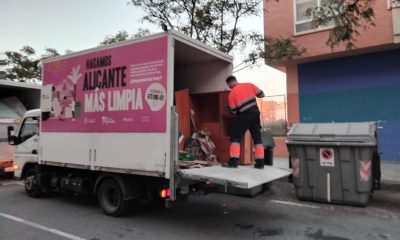
 Costa Blanca2 weeks ago
Costa Blanca2 weeks agoUsage of Alicante’s “Pick up by Appointment” of unwanted household goods increases by 29%
-

 Costa Blanca2 weeks ago
Costa Blanca2 weeks agoPortugal has arrested the wanted man who killed John George near Rojales
-
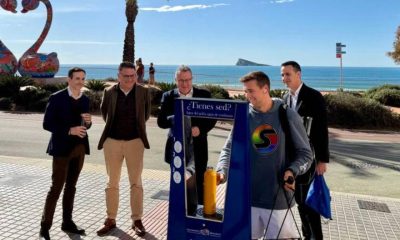
 Costa Blanca2 weeks ago
Costa Blanca2 weeks agoCold water to fight the heat on Benidorm’s streets



